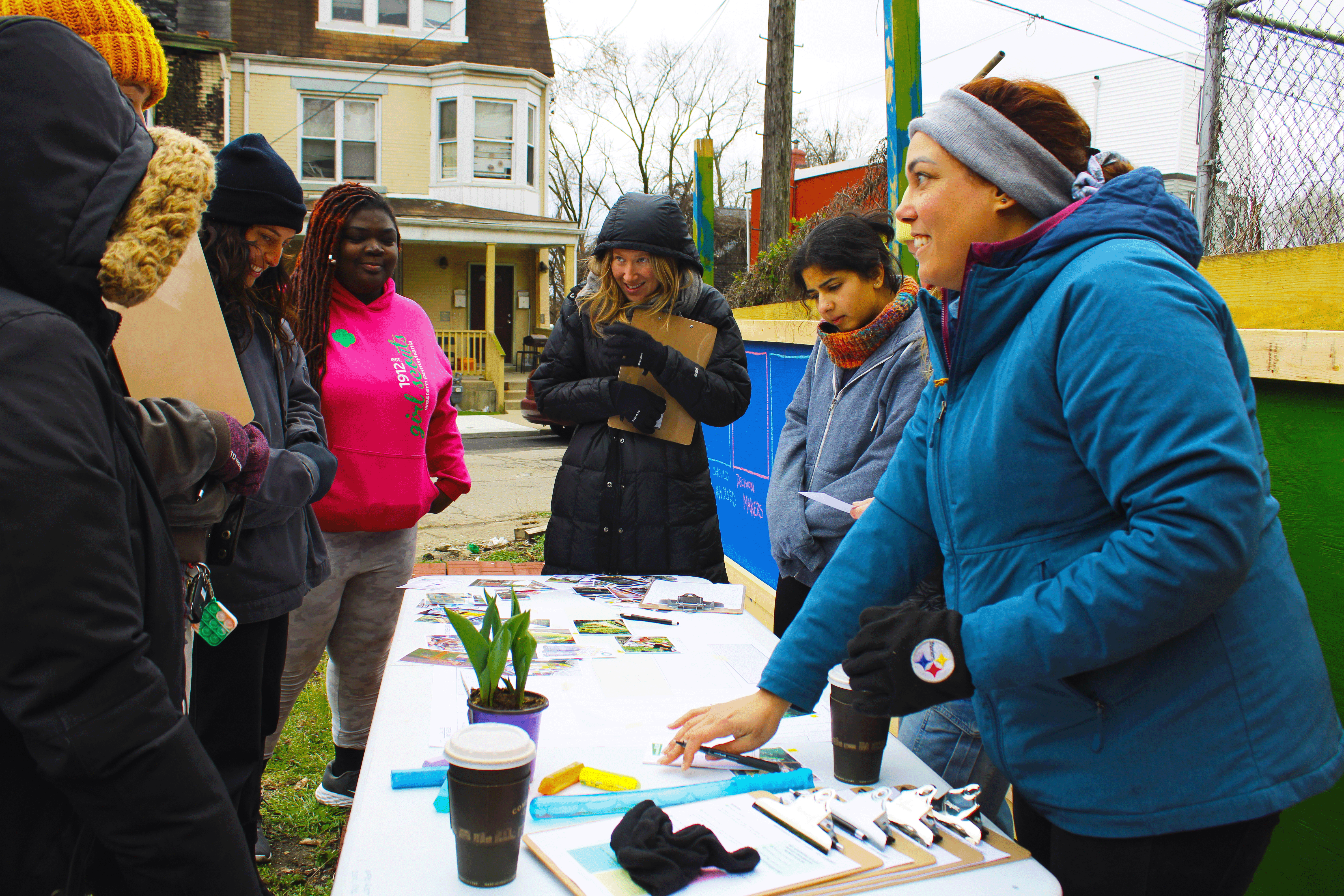Dr. Bey, Executive Director of UrbanKind Institute, is a researcher, analyst, and consultant specializing in challenging common assumptions and bringing alternative perspectives for consideration.
Read on to learn about the expertise, capacity and passion he is lending to the Neighborhood Allies Team, and to Pittsburgh neighborhoods and residents.
“Neighborhood Allies is providing resources that aren’t readily available to community-serving organizations–for the important and hard work of engaging folks that don’t want to be engaged. The work we partner on positions residents to participate and be part of their community–politically, socially and economically.”
-Dr. Jamil Bey
What is your full-time job/what do you do/connection to Pittsburgh community development?
I am the Executive Director of UrbanKind Institute, a community-based consulting firm based in the Hilltop, that focuses on advancing the policies, practices, and programs that are kind to urban people and environments. As the Director, I focus on getting the most out of my team in pursuit of a vision of justice, equity, and inclusion.
When did you start getting involved in community development?
I guess you could say all of my life. I grew up in Beltzhoover and my family were always active members of the community. Over the years, I saw the neighborhood and community transform – and not always for the better. My concern for the health and well-being of my neighbors drove me to get more involved and use my passion, knowledge and experience to help my community and other groups that largely have been excluded from the benefits of economic growth.
For several years, I worked as an independent consultant on political, economic, and neighborhood development issues and volunteered on numerous non-profit boards in Pittsburgh including Voices Against Violence, an organization that has strong roots in the neighborhood I grew up in, Beltzhoover. They were doing good and important work, but it became clear to me, that the needs of the community and residents were complex and deep-rooted and that to really have a positive impact, it would take other neighborhood serving organizations coming together and rallying around common issues and challenges. It’s around that time, that I started to really get involved with local community development.
How are you working with/partnering with Neighborhood Allies?
My involvement with Neighborhood Allies goes all the way back to 2014, when I applied for and was awarded a grant to assess and build the capacity and reach of all of the neighborhood-serving organizations in Beltzhoover. That work evolved into deeper initiatives in the Hilltop communities and city-wide. Currently, we’re partnering on multiple community engagement and policy initiatives including a youth engagement project in the Hilltop, and on the Equitable Development/p4 work.
What expertise do you bring to enrich neighborhood projects/initiatives we are partnering on?
I’m a Geographer by trade, and Geographers look at the world from different scales/scopes, seeing the network of connections and potential solutions (there’s never just one cause or solution!). I bring that perspective to every aspect of my work–recognizing that the way many individuals in positions of power understand our neighborhoods, communities, and groups they represent does not always reflect the on-the-ground realities. Our work at UrbanKind revolves around relationships that are built off of trust, honesty, understanding and fairness.
What is special about the work we are collaborating on?
In all of the work that I do with Neighborhood Allies, it is instilled that we will work hard to lift up the voices of those who aren’t heard, listen to those voices, and bring them to the table. It’s clear that Neighborhood Allies shares our commitment and values this because they provide the resources and time that’s needed to make it happen.
What value-add and impact do you see us having via our collaborative work?
Our work is creating a platform where residents are comfortable bringing their lived experiences to the table to drive neighborhood change, rather than to be victims of it.
What do you look forward to working with us in the future on?
I look forward to the breaking the cycle of poverty in our communities and raising expectations of people living in those communities. Our comprehensive work is going to enable us to change what it means to be born in poverty here in Pittsburgh. We are making an imprint on neighborhood change, which has the potential of positively effecting thousands of low income citizens across the city.
For more information on Dr. Bey and the UrbanKind Institute visit their website.


